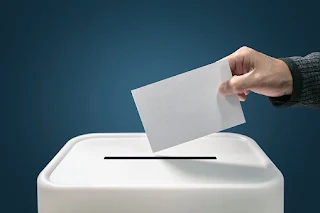FREE-AND-FAIR-ELECTIONS:
FREE AND FAIR ELECTIONS:
Dave Ikiedei Asei
15/01/2023
An essential component of democracy is elections. Elections must be "free and fair" in order to reflect the wishes of the public. Free means that everyone who is eligible to vote has the right to register, cast a ballot, and exercise that right freely. Every citizen over the age of 18 has the right to vote in the majority of nations around the world. An election is deemed "free" when you have the choice of casting your ballot for the candidate or party of your choosing without being coerced or intimidated by anyone.
WHAT ELECTIONS ARE FREE AND BINDING?
A "free" election is also one in which you can vote with confidence, without worrying about intimidation or attacks from opposition party members. Your vote should stay private and should not be disclosed in any way to avoid assaults from parties you didn't support.
WHAT DEFINES A FAIR ELECTION?
A fair election is one in which all registered political parties are given an equal chance and right to run at all levels of elections, solicit votes, and have political meetings and rallies throughout the nation or state, as the case may be. This offers them an equal opportunity to persuade voters
Additionally, a fair election is one in which all voters are given the same opportunity to register freely, cast their ballots for the candidates of their choice, and have their votes counted, and in which the results that are announced accurately reflect the actual vote totals that are listed in the voter registration records in all polling places.
ESSENTIAL COMPONENTS
Free and fair elections are essential components of a true democracy, so everyone in a nation, region, or local government must work urgently to maintain peaceful elections in order to meet the benchmark of credible, free, and fair elections, which will be recognized as credible by all candidates, as well as by local and international observers and civil society organizations.
In that regard, it is crucial for everyone to understand how to take part in elections in accordance with the laws and guidelines outlined by the constitution and the election umpire appointed by the government of the country. Nigeria, in particular, and other countries who have elections to choose their leaders on a regular basis should always follow the rules of the game.
SOME RULES TO GUIDE US IN A FREE AND FAIR ELECTIONS IN NIGERIA AND ACROSS THE GLOBE
When Nigeria's rivals go to the polls on February 25th, 2023, and March 11th, 2023, respectively, as indicated by the election umpire, the independent election Commission, people anticipate seeing these characteristics in action.
In this context, it is important to consider a few essential election procedures that must be followed regardless of the results of the currently recognized political parties in order to ensure peaceful coexistence following a vote.
To protect the safety and security of voters and polling places, as well as to promote peaceful and courteous campaigning and dialogue, it is crucial to establish transparent and fair voting procedures.
The election's fairness and openness can also be ensured by using an impartial electoral commission that is independent from political parties. It's crucial to have a strong legal system in place to handle any problems or disagreements that may develop during the election and following the results
Equally, it is important to have effective mechanisms in place to address and resolve any disputes or issues that may arise during the election. This can include having a neutral and impartial body to handle complaints and disputes, as well as having clear laws and regulations in place to govern the election process.
Lastly, it's important to promote a culture of peaceful and respectful discourse and campaigning. This can include setting guidelines for political campaigns, and encouraging candidates to refrain from using hate speech or inciting violence, and respect for the democratic process. Campaigns should be issue based and not attack candidates in a derogatory manner which could cause clash between supporters of the different parties and the candidates .
To sum it up, to maintaining a peaceful election requires a combination of effective policies, institutions, and community engagement to ensure that all voices are heard and that the process is seen fo be free, fair and transparent.







Comments